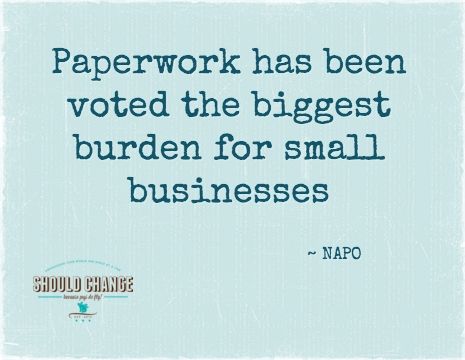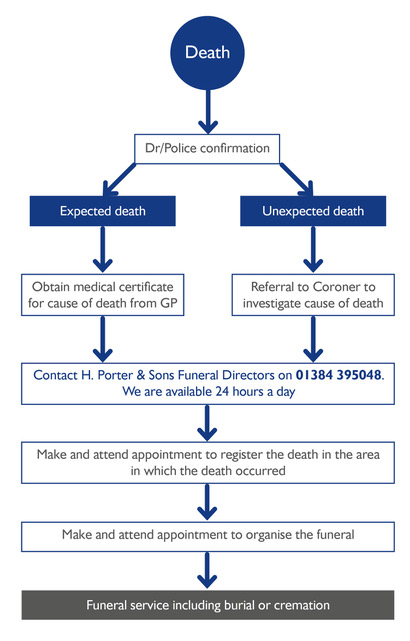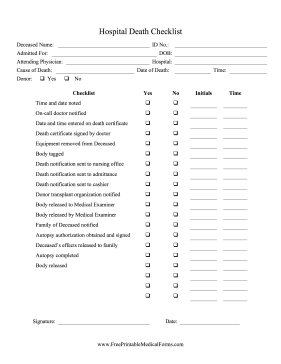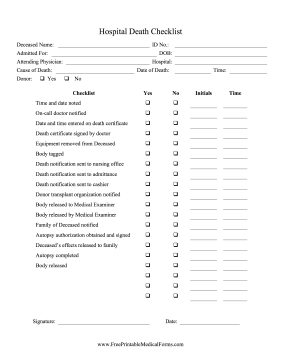Essential Paperwork Needed After Someone Dies

When someone passes away, handling their affairs can feel overwhelming. The process involves a multitude of legal, financial, and administrative tasks, all requiring careful attention to detail. This guide will walk you through the essential paperwork needed after a loved one's death, ensuring that you cover all necessary steps with minimal stress.
The Death Certificate

The first and most critical document you’ll need is the death certificate. Here’s what you should know:
- Obtaining Copies: You’ll generally need to provide several copies for various institutions. Typically, you can get these from the county or state registrar, or sometimes from the funeral home.
- Legal Requirement: Many organizations will require an original or certified copy to validate the death and process claims or transfer assets.
- Legal Implications: This document acts as a legal proof of death, which is crucial for tasks like probate, insurance claims, and estate settlement.
📝 Note: Not all death certificates include a cause of death due to privacy concerns. Be prepared to provide an alternative form of proof if needed.
The Will and Testament

Locating and reading the deceased’s last will and testament is pivotal:
- Where to Find: Look in personal files, safety deposit boxes, or ask the deceased’s lawyer.
- Importance: It outlines who should inherit the estate, name of the executor, and instructions for asset distribution.
- Execution: If there’s a will, it must be filed with the probate court, triggering the probate process.
Letters Testamentary or Administration

After the will is admitted into probate, the executor will receive:
- Letters Testamentary: Given to the executor named in the will.
- Letters of Administration: Issued when there’s no will, or the named executor is unavailable, or deemed unfit.
📂 Note: These documents give legal authority to manage the estate, pay debts, and distribute assets.
Financial Accounts and Asset Inventory

Gathering financial documents is crucial for asset management:
- Bank Statements: For checking and savings accounts.
- Investment Portfolios: Stocks, bonds, mutual funds, retirement accounts like IRAs or 401(k)s.
- Property Deeds and Titles: For real estate, vehicles, boats, etc.
- Life Insurance Policies: Locate policies to claim benefits.
Insurance and Benefit Claims

Claiming insurance and benefits requires specific documentation:
- Life Insurance: Policy documents, death certificate, claim forms.
- Social Security: Inform Social Security to stop payments and apply for survivor benefits.
- Pensions, Annuities, and Benefits: Contact the respective organizations or the employer to claim any death benefits or pensions.
Taxes and Debts

Dealing with the deceased’s financial obligations includes:
- Income Tax Returns: Filing the last personal income tax return and possible estate tax returns if the estate exceeds thresholds.
- Creditors and Debts: Notify them to settle any outstanding debts; some might be forgiven, others need to be paid from the estate.
In managing the estate:
- Executor/Administrator: Ensure to appoint or confirm an executor or administrator for legal management of the estate.
- Probate Process: This legal process validates the will, pays off debts, and distributes assets.
This comprehensive overview covers the primary documents needed when dealing with the aftermath of someone's passing. From obtaining the death certificate to navigating the probate process, understanding these steps can help in the effective and respectful handling of a loved one's estate, ensuring their wishes are honored while complying with legal and financial requirements.
What happens if a death certificate cannot be obtained?

+
In the rare case where a death certificate cannot be obtained immediately, alternative documentation like coroner’s reports or legal affidavits might be accepted by some institutions. However, this might delay proceedings.
Can the probate process be avoided?

+
Yes, with certain estate planning strategies like joint ownership, setting up trusts, or naming beneficiaries for assets like bank accounts and retirement funds, it’s possible to avoid probate.
Who is responsible for paying the deceased’s debts?

+
The executor or administrator of the estate is responsible for settling debts with estate assets. If the estate has insufficient funds, some debts might remain unpaid or be forgiven.